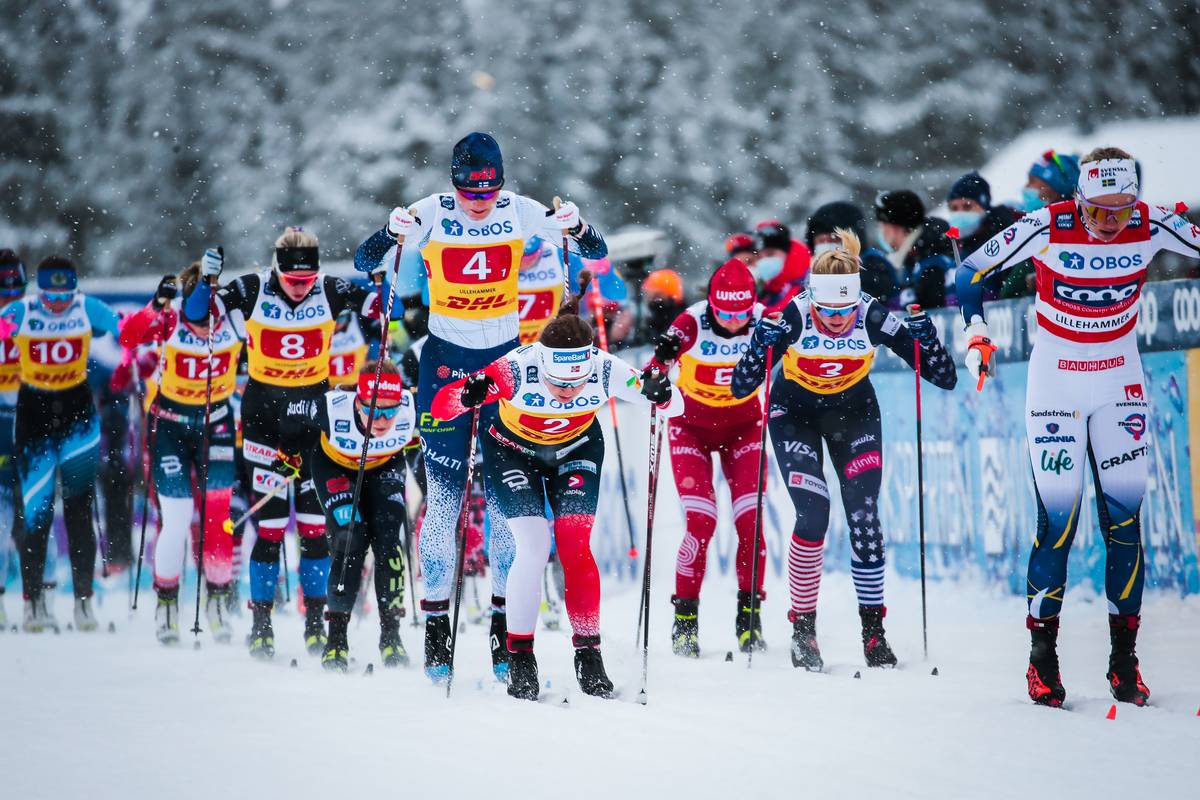
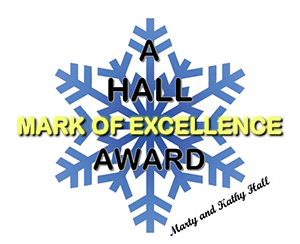 This World Cup coverage is made possible through the generous support of Marty and Kathy Hall and the A Hall Mark of Excellence Award. To learn more about A Hall Mark of Excellence Award or to learn how you can support FasterSkier’s coverage please contact info@fasterskier.com.
This World Cup coverage is made possible through the generous support of Marty and Kathy Hall and the A Hall Mark of Excellence Award. To learn more about A Hall Mark of Excellence Award or to learn how you can support FasterSkier’s coverage please contact info@fasterskier.com.
Bring out the high socks and glitter, it’s a relay day on the World Cup.
Whereas the early legs of the men’s race skied like an accordion, the first four teams pulling the field apart before each exchange, then biding their time as the next few groups regained contact, the top three teams in the women’s race seemed evident from the onset of the second lap.
This statement should not imply that the race was in any way less suspenseful. Within this lead group were some of the top Swedish athletes, who have proven to be a force in both sprint and distance, racing against a deep Russia I team, whose members have not yet earned a World Cup podium this season.
On home turf with history pointing in their favor, Norway has won 17 of the last 18 World Cup relays, and took the gold medal in the event at last year’s World Championships in Oberstdorf, Germany with the same team that started today. As the top three teams pulled ahead, the Norway I team evidenced the determination to continue this streak.
At the first exchange, these three teams were joined by Germany, which was led by Katharina Hennig, and the Finland I team, led by Johanna Matintalo.
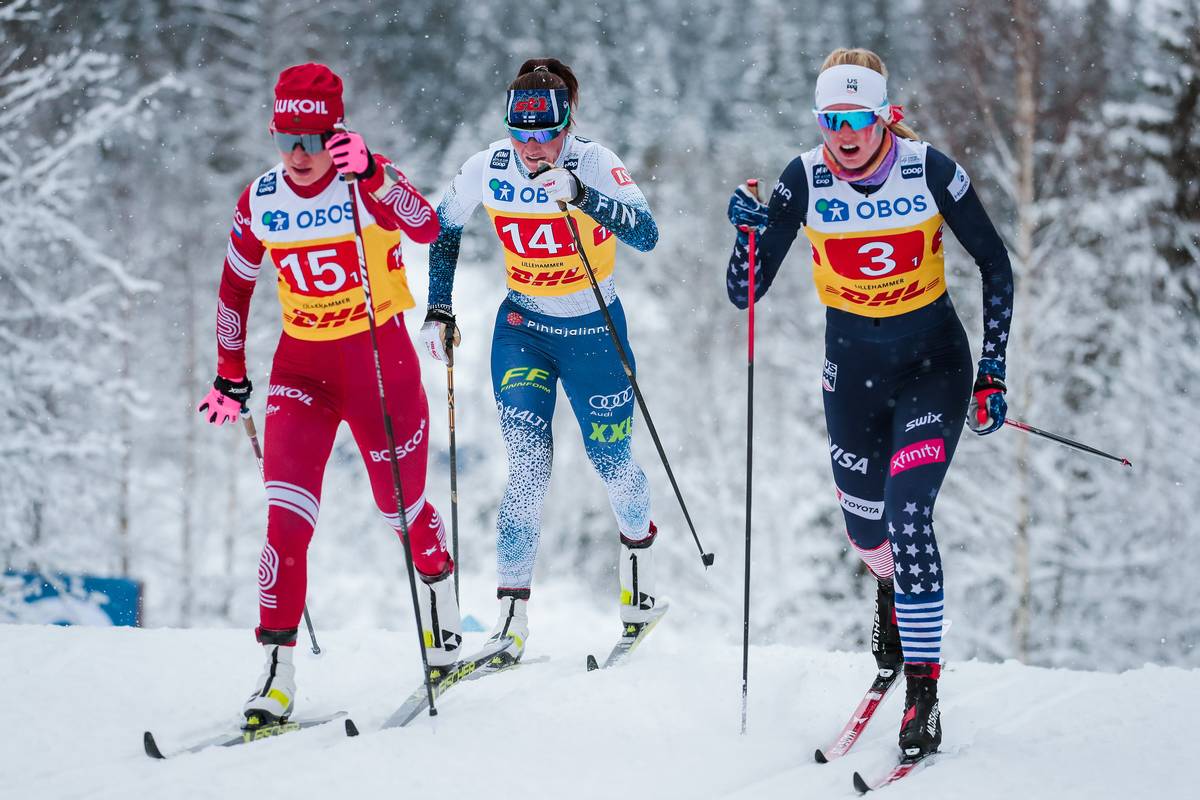
The United States I team, led by Hailey Swirbul, who tagged off to Rosie Brennan in 9th (+21.6). At 2k, U.S. I was only a few seconds back on the leaders. Unfortunately for the Americans, shortly thereafter Swirbul broke a pole basket. Racing in fresh snow, Swirbul slowly began to bleed time, fighting to keep the time lost to a minimum.
By the second exchange, Sweden I, Russia I, and Norway I, were within 1.2 seconds of one another, but nearly 20 seconds ahead of the chase group. In this lineup was yesterday’s 10k skate winner, Frida Karlsson (SWE) facing Heidi Weng (NOR) who took ninth, and Natalia Nepyaeva (RUS) who finished fifth.
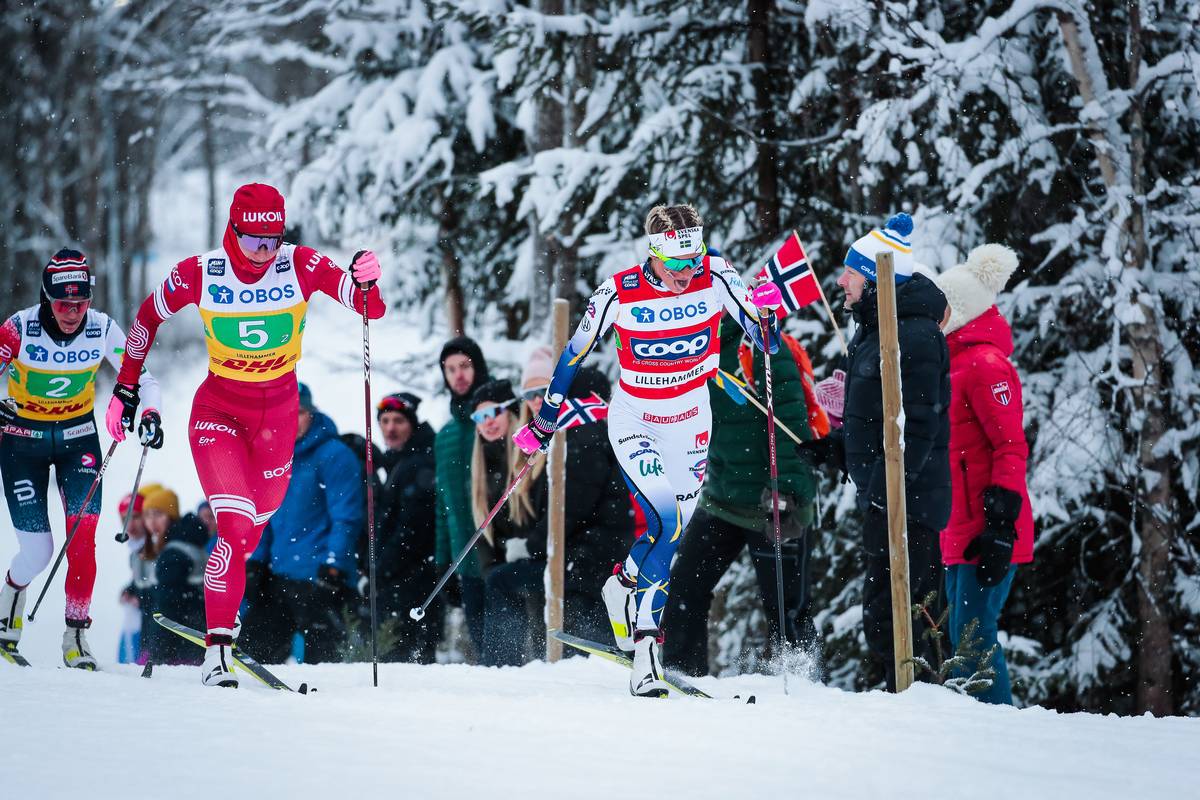
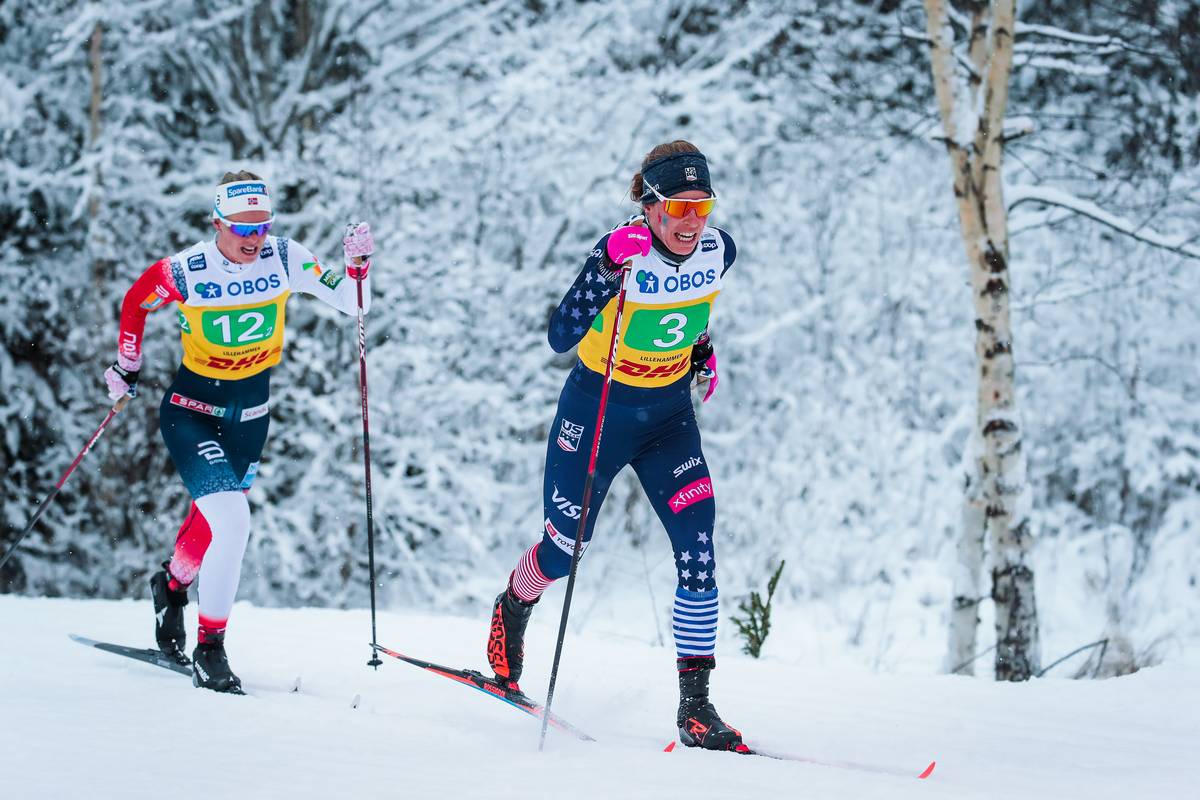
Ceding a few seconds to the leaders, but advancing in position, Brennan pulled the U.S. I team into sixth, within reach of Finland I and Germany, who tagged off ten seconds ahead.
In the first skating leg, Norway’s distance champion Therese Johaug was matched against Ebba Andersson (SWE) and Tatiana Sorina (RUS). Andersson made an early push to set the tone as the final lap neared, but she was unable to break away. The women stayed together through the final exchange, where they tagged off within a second of one another.
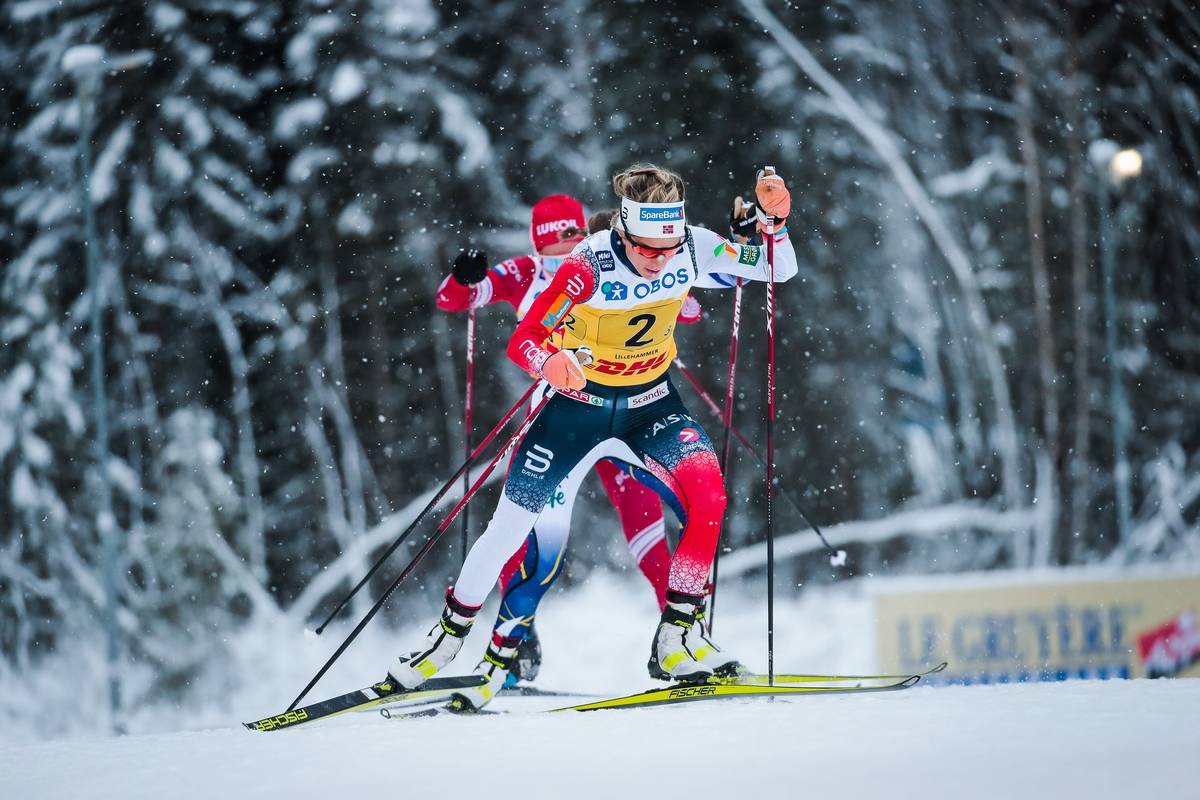
Building upon Brennan’s momentum, Jessie Diggins skated the third leg for the Americans. Giving the energy we’ve come to expect from Diggins during relays, she hammered her leg of the course, gaining time on the leaders and advancing her team into fourth place at the final exchange. Still at a deficit of 26.4 seconds, a podium finish appeared unlikely in Lillehammer.
However, the effort highlighted the collective grit of her team, sending the message that a future podium is not out of reach. While there are no tests of relay mettle between now and the Olympic Games in February, the event will certainly be a focus as the American women build toward their peak this season.
After the race, Diggins commented on her experience racing in third, a new position for her, and explained how she worked together with Norway II’s Ragnhild Haga to advance both teams position in the field.
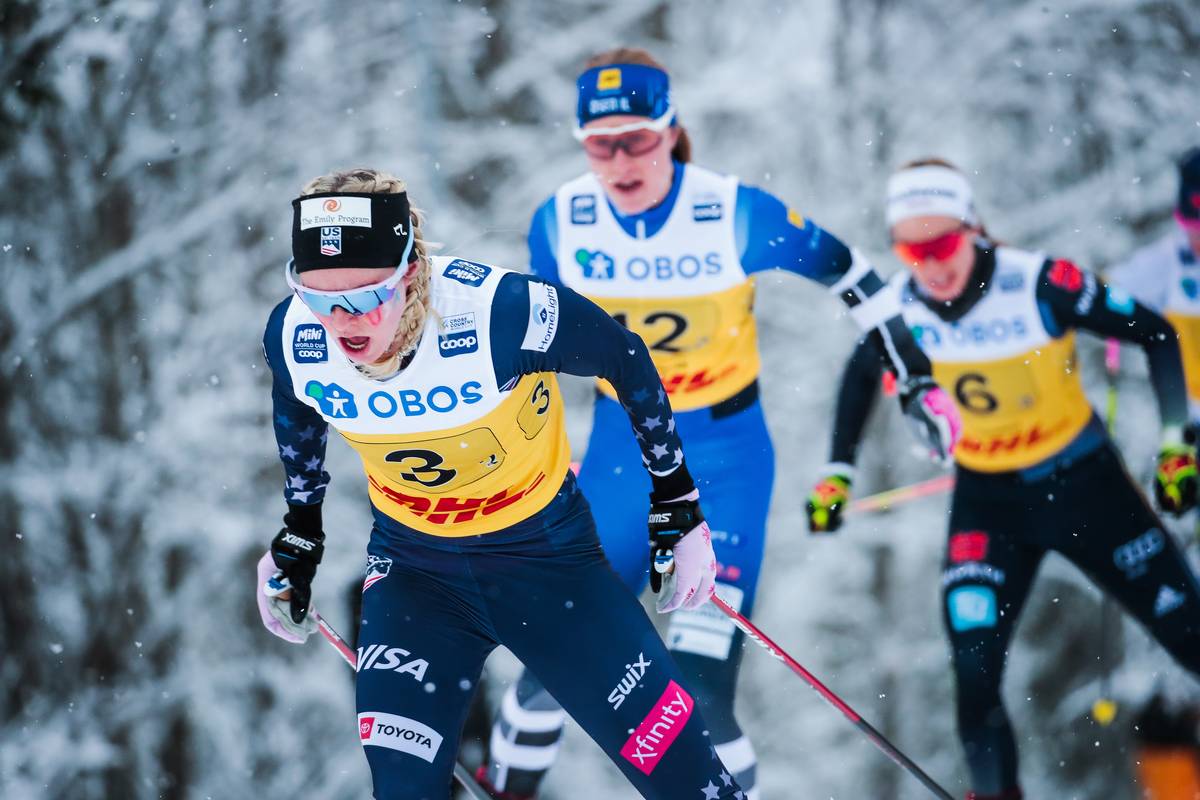
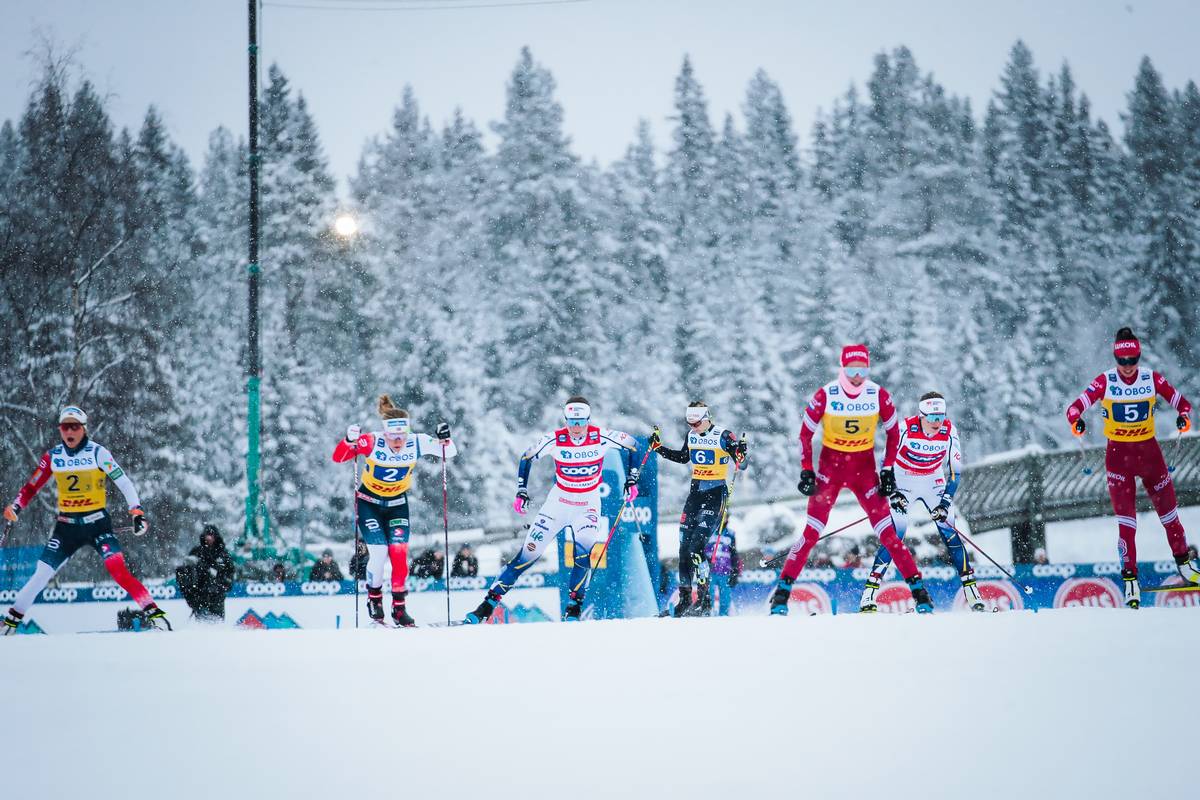
At the halfway mark of her leg, the Norway I anchor, Helene Fossesholm, began to hit it hard. She created a three second gap with 1.6 k to go, but then it appeared that she had burnt a few too many matches to continue at that effort. Moa Olsson (SWE) and Veronika Stepanova (RUS) regained contact and the threesome headed through the final kilometer and into the stadium tightly grouped.
In the final push, Stepanova accelerated at the front to take the win for Russia I, while Olsson and Fossesholm slid in for a photo finish just behind. It was determined that the Swede’s boot was ahead of the Norwegian’s, locking in the podium with Russia I stopping the clock at 54:40.6, followed by Sweden I in second (+1.1) and Norway I in third (+1.2).
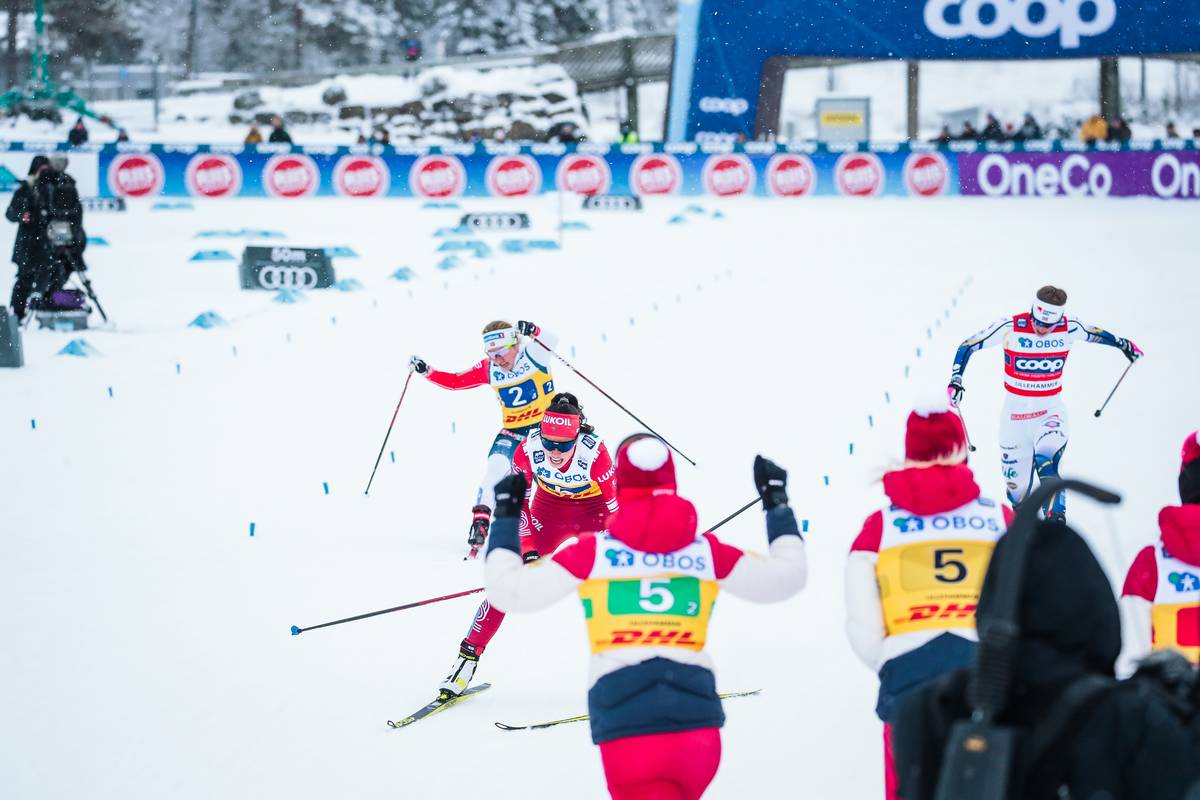
After the finish, an ecstatic Russian team provided the following comments to FIS.
“It was really nice,” leader Yulia Stupak said on behalf of her team. “We’re so happy today. Today was a good race. And we also have a small joker today, our new young star. She was really good.”
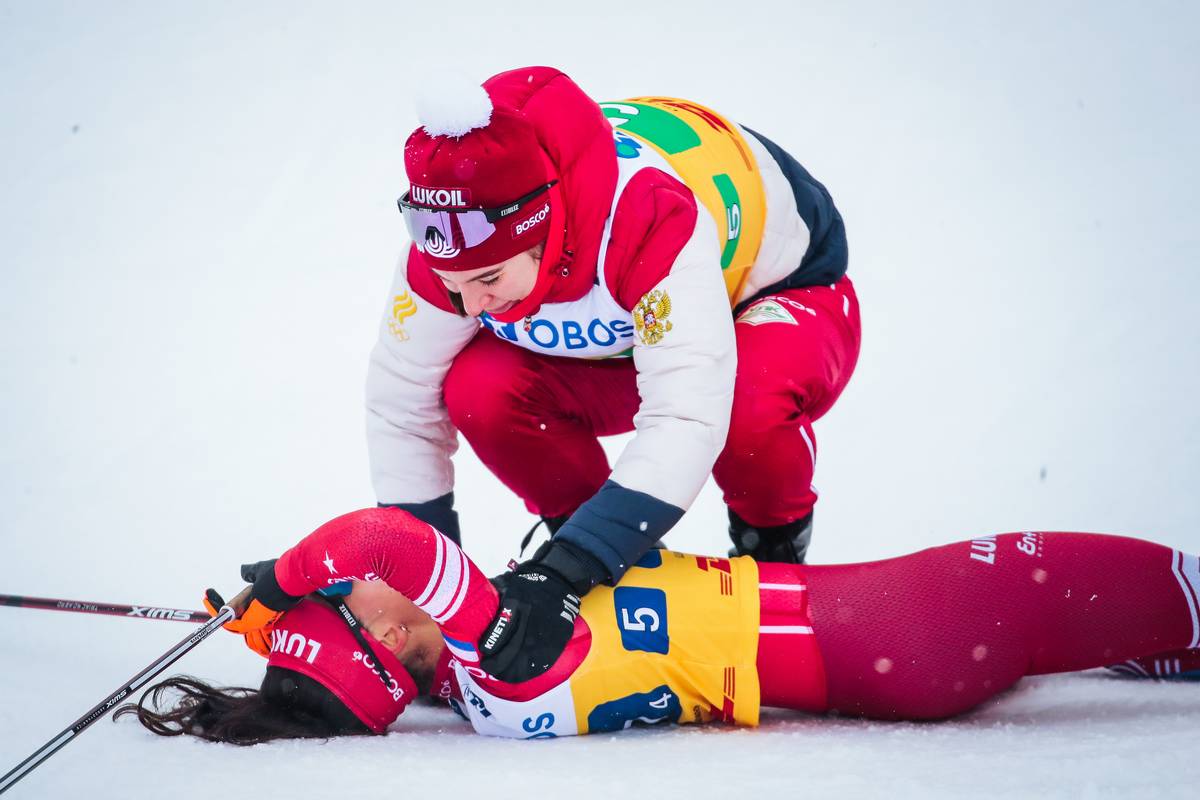
Stupak handed it over to Stepanova, who at 20-years-old is the youngest member of the team. Showing her range, Stepanova was the national champion in both the 15k freestyle and the freestyle sprint at last year’s Russian National Championships in Kirovo-Chepetsk, and also won the 5k free at the 2021 World Junior Championships in Voukatti, FIN. This weekend is only her second time racing at the World Cup level, and has been her first World Cup starts of the season.
“This was a great one,” Stepanova laughed as she charismatically took the mic. “I have an amazing team – thank you, girls.”
When asked about the focus on the Olympic relay and the team’s outlook, the women looked to one another optimistically.
“This [will be] a good competition,” Stepanova said simply.
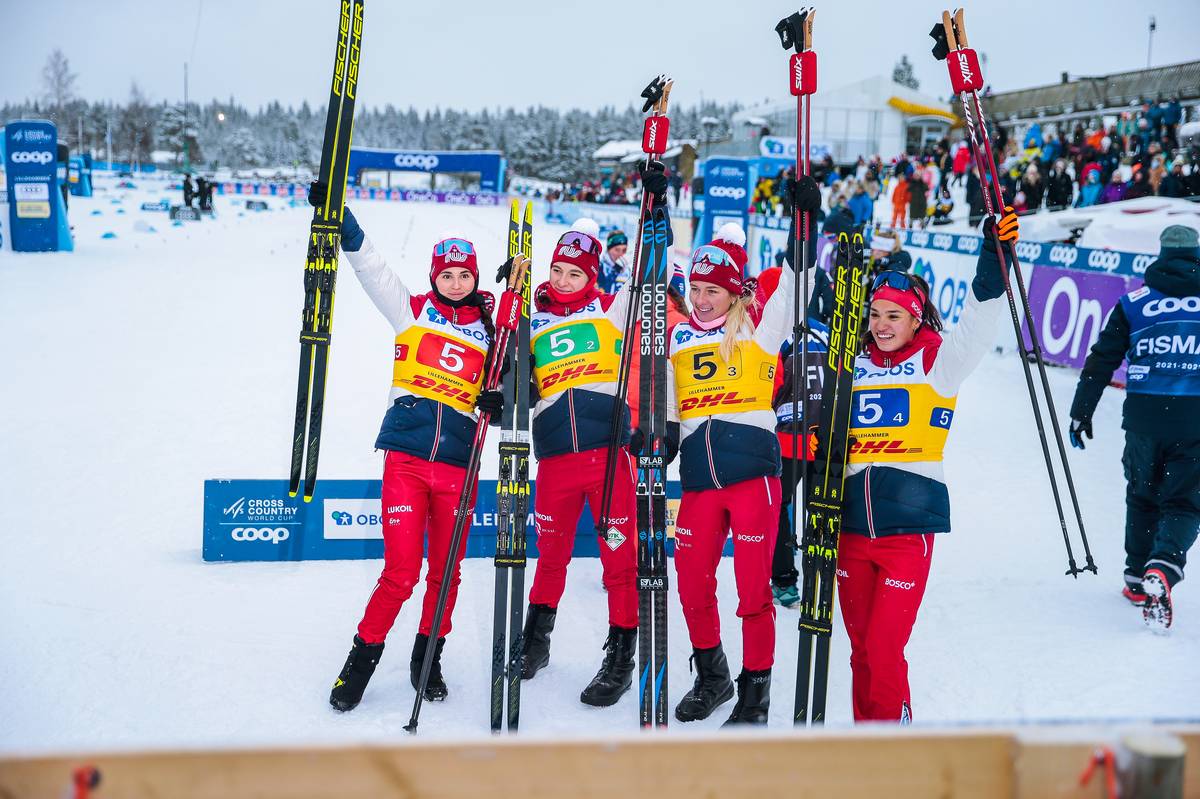
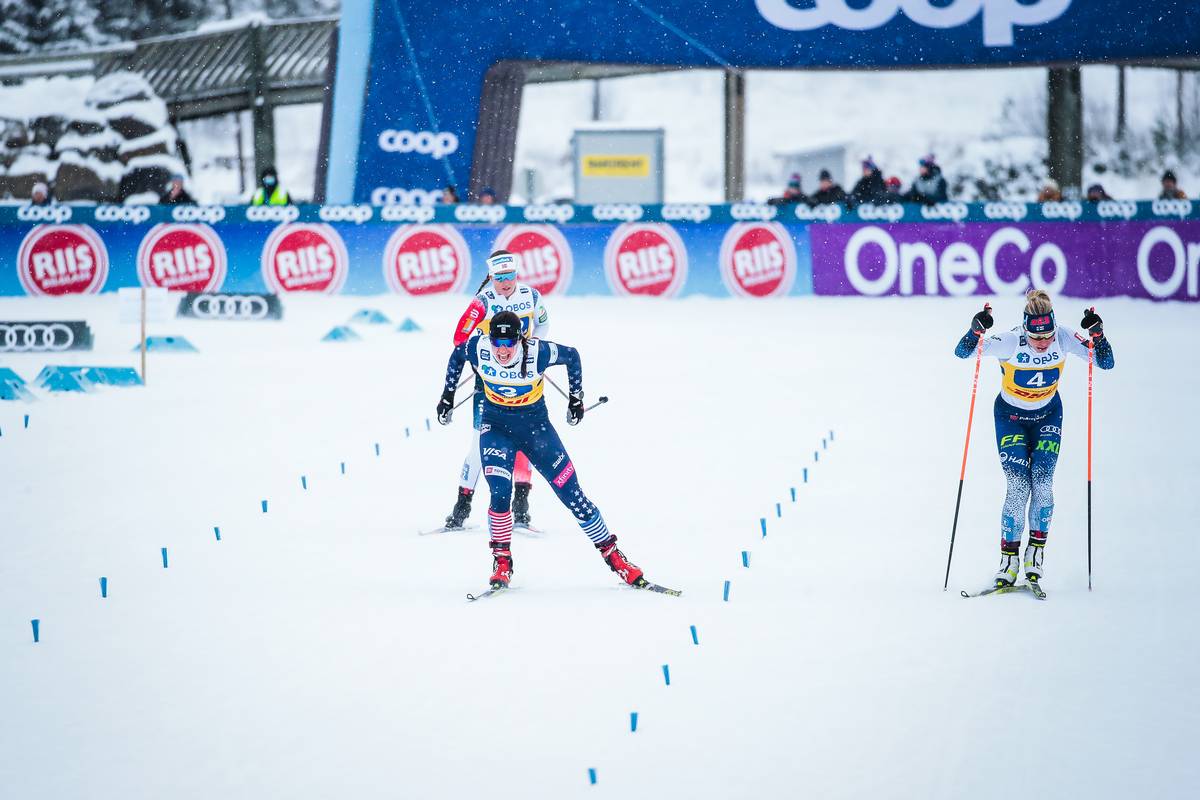
Anchoring the U.S. I team, Julia Kern tucked in with Germany’s Victoria Carl, utilizing the draft and conserving for a tactical final sprint, which she identified as a strength. Halfway through the leg, the chase group was just over ten seconds behind the leaders, before a crash put a wrench in the plans.
Recovering in time to put in a final surge, Kern powered around the curve into the stadium, neck in neck with Finland’s Jasmi Joensuu. The two women accelerated to the line evenly matched, throwing their boots over the line in a photo finish. Times were declared even to the tenth of a second, but Kern was determined to have a marginal advantage over Joensuu, putting the American women in fourth after a valiant team effort.
After the race, Kern explained her tactical approach to the anchor leg, along with additional insight into what was missed by cameras, conditions on the course, and the American women’s outlook as they keep their eyes on the Olympic relay.
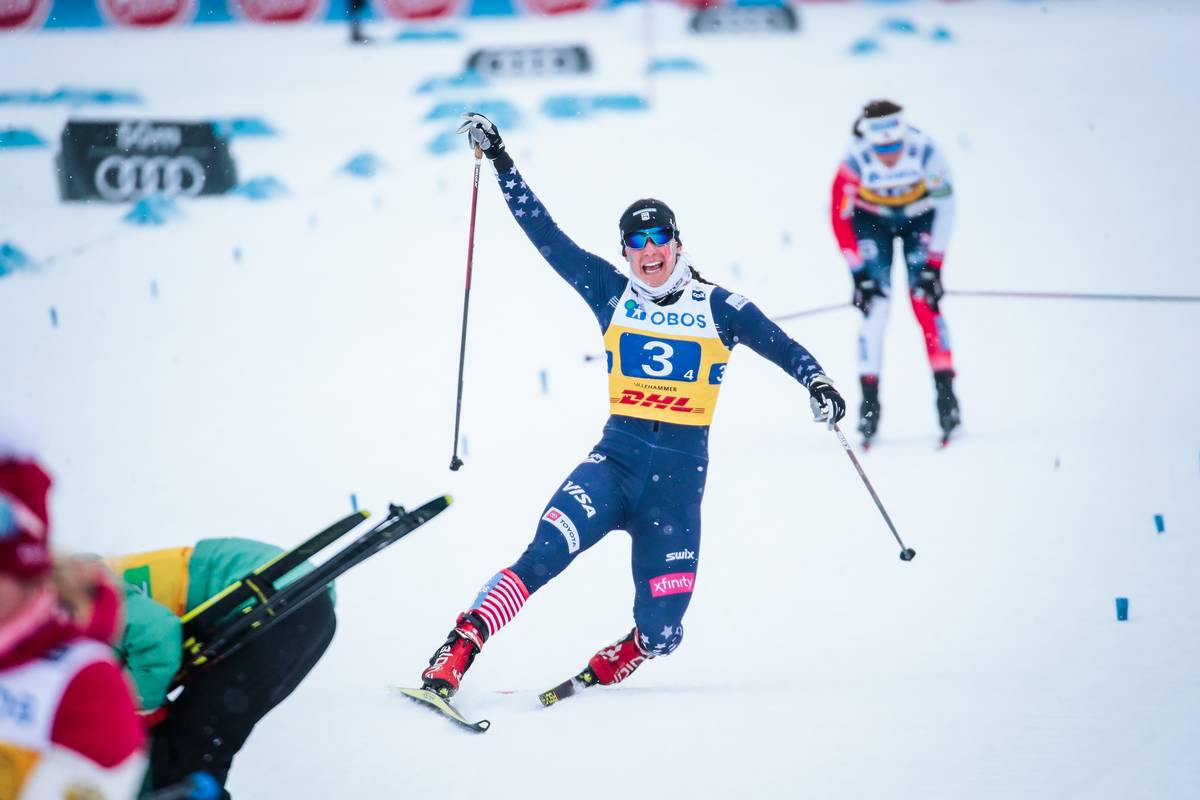

A testament to the development of cross-country skiing in the U.S., a second American women’s team raced in Lillehammer today. Comprised mostly of U23 athletes, the team of Sydney Palmer-Leger, Katharine Ogden, Sophia Laukli, and Novie McCabe skied to 13th today (+4:30.9). The first American team could be seen waiting at the finish to welcome their teammates across the line.
In a post-race interview, U.S. Ski Team Head Coach Matt Whitcomb provided insights into the women’s team selections, how new snow affected racing, and the team’s collective effort to thrive during back-to-back long weekends of racing this early in the season. (Note: This audio includes comments on both the men’s and women’s relays, with men spoken to first.)


Also racing for North America, the Canadian women’s team of Dahria Beatty, Katherine Stewart-Jones, Cendrine Browne, and Maya MacIsaac-Jones finished 16th (+5:31.9).
Racing continues next weekend in Davos, SUI with a freestyle sprint on Saturday December 11th followed by a 10/15k freestyle distance on Sunday the 12th.
Rachel Perkins
Rachel is an endurance sport enthusiast based in the Roaring Fork Valley of Colorado. You can find her cruising around on skinny skis, running in the mountains with her pup, or chasing her toddler (born Oct. 2018). Instagram: @bachrunner4646



